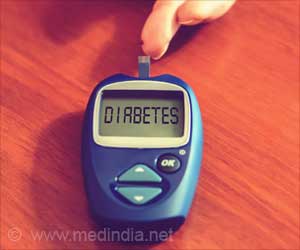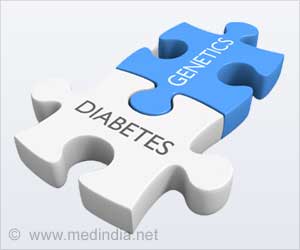A new study has shown that low levels of reactive oxygen species (ROS), especially hydrogen peroxide, within cells may actually protect people from diabetes, by improving their ability
A new study has shown that low levels of reactive oxygen species (ROS), especially hydrogen peroxide, within cells may actually protect people from diabetes, by improving their ability to respond to insulin signals.
"Our studies indicate that 'physiological' low levels of ROS may promote the insulin response and attenuate insulin resistance early in the progression of type 2 diabetes, prior to overt obesity and hyperglycemia. In a way, we think there is a delicate balance and that too much of a good thing - surprise, surprise - might be bad," said Tony Tiganis, of Monash University in Australia.During the study, Tiganis' team observed that mice with a deficiency that prevented them from eliminating physiological ROS did not become insulin resistant on a high-fat diet as they otherwise would have.
The researchers said that those health benefits could be attributed to insulin-induced signals, and the uptake of glucose into their muscles.
Upon giving the mice an antioxidant, the researchers observed that those benefits were lost, leaving the animals with more signs of diabetes.
Tiganis said whether antioxidants are ultimately good for people will probably depend on their state of health or disease.
"In the case of early type 2 diabetes and the development of insulin resistance, our studies suggest that antioxidants would be bad for you," the researcher said.
Advertisement
Tiganis sadi that this study is not the first one to suggest that antioxidants can be a negative, for studies in worms have suggested that antioxidants can shorten lifespan, as have some epidemiological studies in humans.
Advertisement
Tiganis said it would ultimately be important to work out at what stage ROS go from being good to bad.
He suspects it probably depends on the levels and/or the source of their generation. (ROS are generated both on the surfaces of cells and within cells by mitochondria, which convert nutrients such as glucose into energy, he explained.)
Although any health implications of the new findings would require further study, the findings lead Tiganis to suspect it is best not to take daily antioxidant vitamins, especially if one is otherwise healthy.
"Do exercise," he says, as this is a natural source of ROS that may promote insulin action
The study has been published in the journal Cell Metabolism.
Source-ANI
SRM















